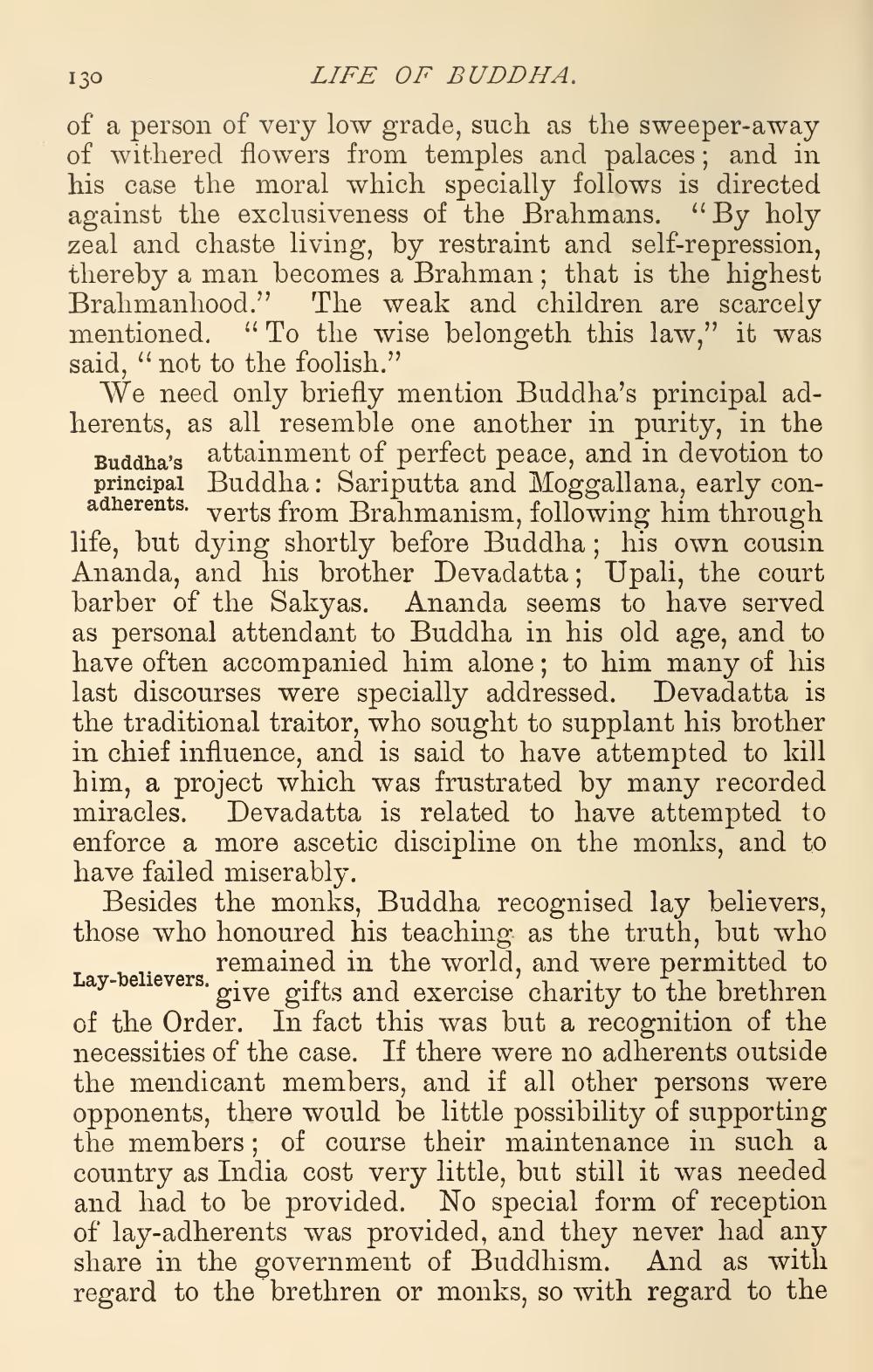________________
130
LIFE OF BUDDHA. of a person of very low grade, such as the sweeper-away of withered flowers from temples and palaces; and in his case the moral which specially follows is directed against the exclusiveness of the Brahmans. “By holy zeal and chaste living, by restraint and self-repression, thereby a man becomes a Brahman; that is the highest Brahmanhood." The weak and children are scarcely mentioned. “To the wise belongeth this law," it was said, “not to the foolish."
We need only briefly mention Buddha's principal adherents, as all resemble one another in purity, in the
Buddha's attainment of perfect peace, and in devotion to principal Buddha: Sariputta and Moggallana, early conadherents. verts from Brahmanism, following him through life, but dying shortly before Buddha; his own cousin Ananda, and his brother Devadatta; Upali, the court barber of the Sakyas. Ananda seems to have served as personal attendant to Buddha in his old age, and to have often accompanied him alone; to him many of his last discourses were specially addressed. Devadatta is the traditional traitor, who sought to supplant his brother in chief influence, and is said to have attempted to kill him, a project which was frustrated by many recorded miracles. Devadatta is related to have attempted to enforce a more ascetic discipline on the monks, and to have failed miserably.
Besides the monks, Buddha recognised lay believers, those who honoured his teaching as the truth, but who
remained in the world, and were permitted to
** give gifts and exercise charity to the brethren of the Order. In fact this was but a recognition of the necessities of the case. If there were no adherents outside the mendicant members, and if all other persons were opponents, there would be little possibility of supporting the members; of course their maintenance in such a country as India cost very little, but still it was needed and had to be provided. No special form of reception of lay-adherents was provided, and they never had any share in the government of Buddhism. And as with regard to the brethren or monks, so with regard to the
Lay-believers.




